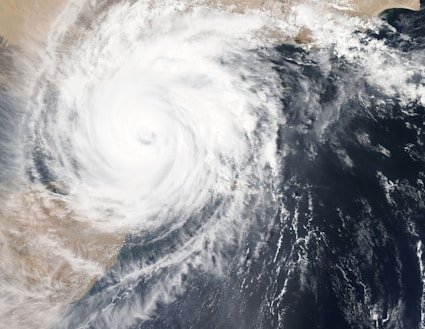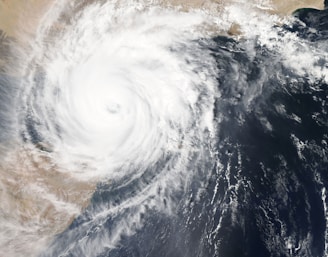Hurricanes
Insights for preparedness and evacuation.
8/26/20233 min read


As a preppers, we understand the importance of having a comprehensive plan in place to ensure the safety and well-being of myself and our loved ones. Hurricane preparedness and evacuation are crucial steps to ensure the safety and well-being of individuals in areas prone to these natural disasters. To effectively prepare for a hurricane, a detailed checklist and plan must be put in place. This includes gathering essential supplies such as food, water, batteries, and first aid kits, as well as securing your home by reinforcing windows and doors. Additionally, it is important to create an evacuation plan in advance, identifying safe routes and designated shelters. Stay updated with the latest weather reports and heed evacuation orders from local authorities. Communication is key during such emergencies, so ensure you have a reliable method to stay connected with loved ones. By following a comprehensive checklist and plan, you can minimize risks and be well-prepared in the face of a hurricane.
Stay Informed:
Monitor local weather updates and stay tuned to official sources such as the National Hurricane Center or local emergency management agencies.
Sign up for emergency alerts and notifications to receive timely information about the storm's path and potential impacts.
Create a Hurricane Preparedness Kit:
Stock up on non-perishable food items, such as canned goods, energy bars, and dried fruits, to last at least three days.
Store an ample supply of clean drinking water, at least one gallon per person per day, for a minimum of three days.
Gather essential medications, first aid supplies, and personal hygiene items.
Have a battery-powered or hand-cranked radio, flashlights, extra batteries, and a portable phone charger.
Include important documents like identification, insurance policies, and medical records in a waterproof container.
Prepare necessary tools, such as a wrench, pliers, and a utility knife, for potential utility shut-offs or repairs.
Pack extra clothing, blankets, and sturdy shoes for each family member.
Don't forget about your pets—have food, water, and supplies for them as well.
Secure Your Property:
Trim trees and remove dead branches to minimize the risk of falling debris.
Reinforce windows and doors with storm shutters or plywood.
Secure outdoor furniture, grills, and other loose items that could become projectiles in high winds.
Clear gutters and downspouts to prevent water damage.
Consider installing a generator for backup power in case of prolonged outages.
Develop an Evacuation Plan:
Determine if you live in an evacuation zone and familiarize yourself with the designated evacuation routes.
Identify multiple evacuation destinations, such as the homes of family or friends in safer areas or designated shelters.
Plan for the needs of elderly or disabled family members, including any necessary medical equipment or supplies.
Prepare a "go bag" with essential items like clothing, medications, important documents, and emergency supplies.
Make arrangements for pets, either by bringing them with you or finding a pet-friendly shelter or boarding facility.
Share your evacuation plan with family members and neighbors, and establish a communication plan to stay connected.
During the Hurricane:
Follow instructions from local authorities and evacuate promptly if advised to do so.
Stay indoors and away from windows, seeking shelter in a small, windowless interior room on the lowest level of your home.
Keep your emergency kit and important documents easily accessible.
Use battery-powered devices for communication and avoid using candles or open flames.
Listen to weather updates and be prepared to take immediate action if conditions worsen.
After the Hurricane:
Wait for official clearance before returning to your home or area.
Inspect your property for damage and take photographs for insurance purposes.
Avoid standing water, as it may be contaminated or hiding hazards.
Contact your insurance company to report any damages and begin the claims process.
Restock your emergency supplies and replenish any used items in your hurricane preparedness kit.
Remember, this plan is a starting point, and it's essential to adapt it to your specific circumstances and local recommendations. Stay vigilant, stay prepared, and prioritize the safety of yourself and your loved ones.
Thanks for reading! Get Prepped!
